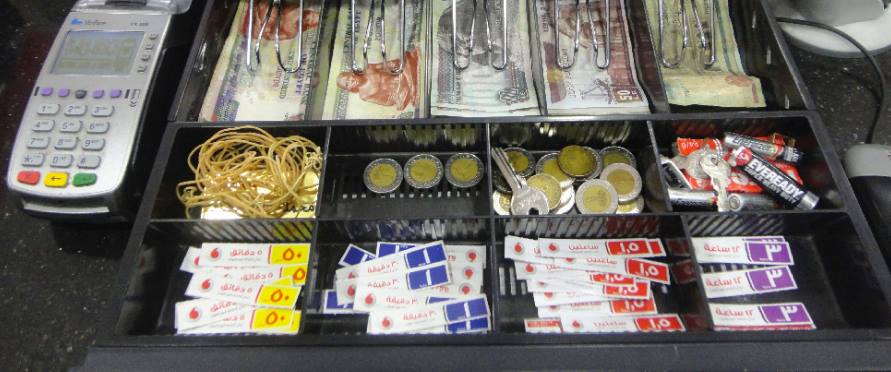Opportunities most often come disguised as problems. Many of are so caught up staring at the problem that we allow ‘opportunities’ to slip away.Take the issue of shortage of small change. Many of us have been victim of it - at Toll Naka; when buying vegetables; shopping for grocery at our local ‘kirana’ store. Our fellow country people have come out with an indigenous solution. At Toll Naka they give us Éclair in exchange for small change; vegetable vendor give us an extra tomato; kirana store gives us a small value item as substitute for small change.
Let me take you on a visit to Egypt where small businesses too face the problem of returning small change. #Vodafone Egypt decided to convert this problem into an opportunity to increase the number of distribution points for selling re-charge cards to its prepaid users, as well as increasing its revenue.
It decided to launch a ‘Micro Recharge Card in various small denominations & christened them ‘Fakka’ (reference above), which in local language means ‘small change’ & distributed them extensively in ‘mom & pop’ stores, our equivalent of ‘kirana’ stores.When a small shopkeeper had shortage of change she confidently dispensed out Vodafone’s Micro Recharge Card of equivalent denomination. Customers took it happily because it was valuable to them. (referenced below)To make sure that they did not face resistance from small shopkeepers for stocking it, ‘fakkas’ were designed to fit into the compartment of the cash register, which is originally meant for keeping small change. (Referenced below)Vodafone “Fakka” micro re-charge cards has acquired the status of a new currency in Egypt with little shops across the country stocking the “Fakka” cards to use as change, giving Vodafone Egypt the biggest distribution channel possible.
Vodafone’s Micro Recharge Card is a win-win for all 3-stake holders:
• Shopkeepers: It made them appear generous.
• Customers: They got what they desired & valued
• Vodafone: It helped them gain goodwill among the low-income group, who were the biggest beneficiary of this program; it also increased the number of distribution points at which Vodafone’s Recharge Cards were available.
Business Lesson for us:
1. Be mindful of your environment. Opportunities are plentiful but are camouflaged.
2. View problems as opportunities.
3. I believe that foundation of great business lies in understanding the pain points of customers & then attempting to reducing or eliminating them.
4. The business model should strive to arrive at a solution, which is a win – win for all stake holders.
5. The best solutions are those that dissolve into the lifestyle of its customers, remain invisible but enhance their lifestyle.
6. Whenever you create a property - brand it. In this case, Vodafone has branded this property as ‘Fakka’.
———-
In this series, Rajesh Srivastava, Business Strategist and Visiting Faculty at IIM Indore gives you a regular dose of strategy case studies to help you think and keep you one step ahead as a professional as compared to your peers. Rajesh is an alumnus of IIM Bangalore and IIT Kanpur and has over 2 decades of experience in the FMCG industry. All previous Strategy with RS posts can be found here


